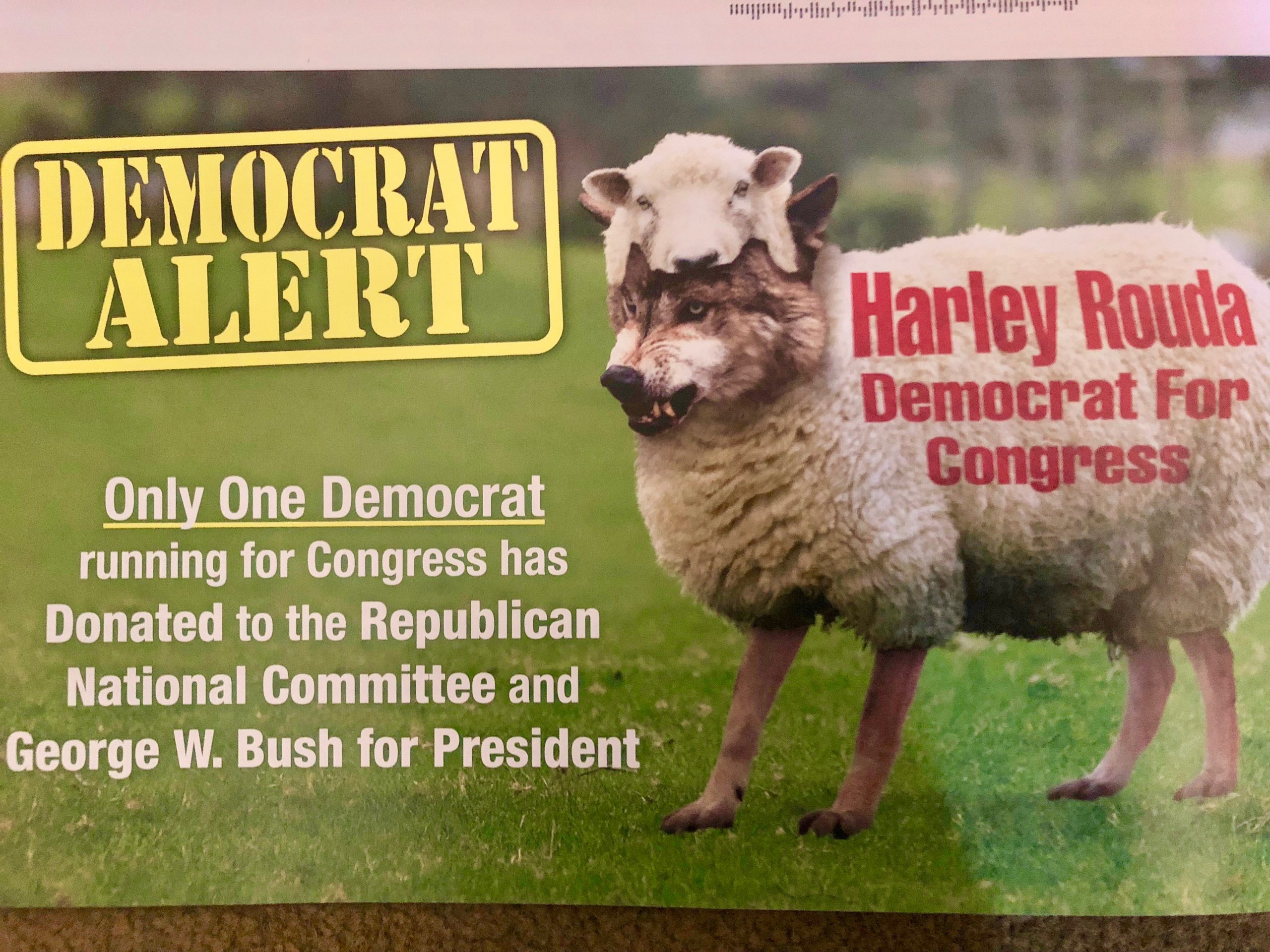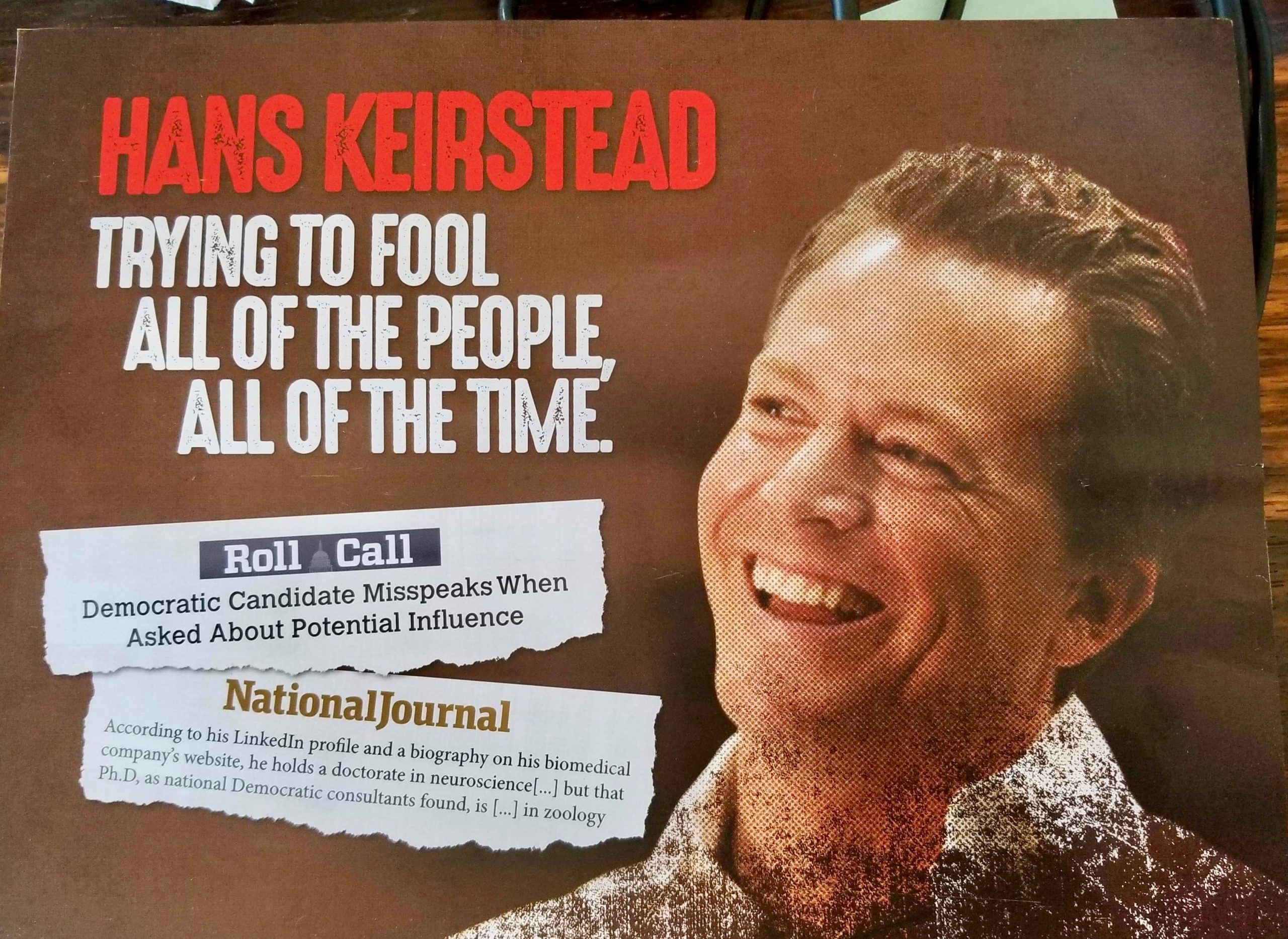HUNTINGTON BEACH, Calif. — Republican Dana Rohrabacher is an ideal opponent for Democrats. He’s described as Russian President Vladimir Putin’s “favorite congressman,” supports offshore drilling in his coastal district, and recently said realtors should be allowed to discriminate against LGBTQ customers.
But the Democrats running to challenge him are engaged in a circular firing squad.
Stem cell scientist Hans Keirstead was the Democratic Party’s preferred candidate before he wasn’t. Businessman Harley Rouda was a Republican, 20 years ago, before he was a Democrat. And FBI adviser Omar Siddiqui says party officials told him he was too brown to win in Orange County.
Ugly primaries are expected, but for Democrats, the risks are high in California. As the party fights to win back the House, every race is critical, especially contests like the 48th Congressional District. Though Rohrabacher won re-election by 58 percent, the district went for Hillary Clinton by two points in 2016, making it a top target. Republicans maintain a 10-point registration advantage, but the race is a toss-up.
California presents a unique problem for Democrats and has put the party’s continued struggle to unify on display. In the state’s “jungle” primary, candidates of both parties compete in one contest, and the top-two vote-getters advance. With days to go before the June 5 primary, the 48th’s contest is the one Democrats most fear they’ll lose. And the wounds are self-inflicted.
Keirstead and Rouda continue to lob attacks at each other as Siddiqui fights to hang on. Negative mailers, and TV ads have dominated the cycle. All three camps blame the party establishment for the situation.
“The party once again is making a big mistake of not giving attention to the most experienced qualified candidate who happens to be a person of color,” said Siddiqui, who jumped in the race after Trump fired former FBI Director James Comey. “The party says they need to promote diversity and underrepresented candidates and women candidates, and they have not demonstrated that in the 48th.”
National Democrats recruited Keirstead but never officially backed the former University of California at Irvine professor. Sexual misconduct allegations against him spooked the Democratic Congressional Campaign Committee, said Keirstead, who has denied all wrongdoing.
“The DCCC isn’t exactly known for its excellent decisions in candidate backing,” said Keirstead. “The DCCC makes shallow decisions largely based on money.”

Both Keirstead and Rouda have contributed substantial sums to their campaign. After the DCCC backed Rouda, putting the Laguna Beach technology entrepreneur on its Red to Blue program, Keirstead wrote himself a $650,000 check to keep up.
“I just neutralized the monetary advantage of Rouda’s campaign, and I’ll continue to do so,” said Keirstead.
Rouda argues the negativity of the Keirstead campaign could jeopardize the race for Democrats, though he also took a subtle jab at the national party for adding confusion to the race.
“Certainly, it would have helped this race if due diligence would have been done on the candidates before anybody got behind any candidate for any reason, said Rouda. “The early support for Keirstead has dropped dramatically because of negatives that are coming to light.”
As the DCCC and other Democratic groups fund TV ads hitting Republican Scott Baugh, a former assemblyman running to the right of Rohrabacher in the race, Keirstead and Rouda are attacking each other.

Baugh, a friend turned foe of Rohrabacher, jumped in shortly before the filing deadline closed. Fearful that Baugh could take the second runoff spot, edging out Democrats, Laura Oatman dropped out of the race.
“We could have Dana and Scott on the ballot in November, and that’s a nightmare,” said Oatman, who campaigned for a year and helped build local resistance groups. “Rohrabacher is our Trump in a Hawaiian shirt.”
To overcome the Republican registration advantage like Clinton, a Democrat will have to win over disenfranchised coastal Republicans and the sizable number of “no party preference” voters. Talking about Rohrabacher’s closeness with Russia may not be enough, though it’s certain to fire up the Democratic base in the district.
“If Rohrabacher’s past ties (complete with photos) to the Taliban didn’t hurt him in previous races, I doubt the whole Russia-Putin connection will mean very much to his devoted constituents,” said Mark Pentracca, a political science professor at University of California Irvine.

The number one issue for many residents is the environment. Rohrabacher’s support of opening up the Pacific coast to offshore oil drilling is where a Democrat could appeal to crossover voters.
“In 5 or 10 years, if we don’t do something, this street will be underwater,” said Oatman, standing on the restaurant, boutique-lined Main Street in Huntington Beach.
In previous years, the election would have “been a walk” for Rohrabacher, said Fred Smoller, political science professor at Chapman University. Now, it’s a “wobbler.”
Some polls put Rouda neck-and-neck with Baugh. Keirstead is in the top three mix with them for the second runoff spot. But Smoller said it’s anyone’s guess on who makes it into the top two with Rohrabacher. The fate of Democrats’ rests largely on how the Republican vote splits and if turnout is depressed at all.
“No one knows,” said Smoller. “If they tell you they know, they don’t shit.”

